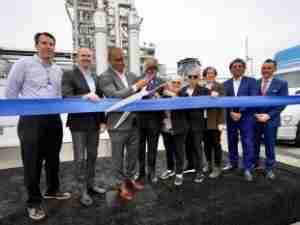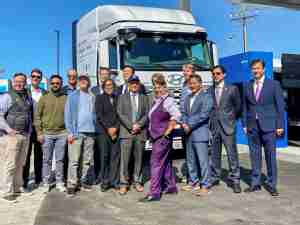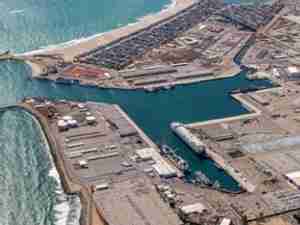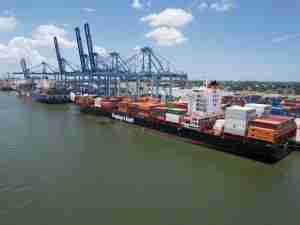Beginning in 2008, the Clean Trucks Program has required the trucking industry to switch to newer, low-emission Class 8, heavy-duty trucks for shipping containers in and out of the port complex.
Today, more than 10,000 clean trucks, meeting stringent 2007 federal emission standards, service the Port. They account for 93 percent of the container traffic.
Class 7 rigs were not originally included in the Clean Trucks Program’s progressive ban of older trucks because they were not typically used in container transport. But some companies began using them to move lighter loads, such as empty containers, as older Class 8 trucks were denied access to the Port.
The Long Beach Board of Harbor Commissioners closed the loophole in January by including Class 7s in the Clean Trucks Program.
“Although the Class 7 rigs did not represent a big percentage of the drayage truck fleet there was still a matter of fairness to the trucking industry partners who got on board early and invested millions to buy cleaner, less polluting trucks,” said Port Executive Director Richard D. Steinke. “This renews our commitment to cleaning up our operations. Although air quality is much better than it was even just a few years ago, we will always be looking for ways to be greener.”
The Port estimates that about 500 Class 7 trucks with 2003 engine models or older will be banned from the Port starting July 1. Most Class 8 trucks with engines older than 2004 were banned at the start of 2010.
Beginning January 1, 2012, all drayage trucks will have to meet the 2007 federal emission standards.
Since it began in 2008, the award-winning Clean Trucks Program has decreased drayage truck related pollution by 80 percent, two years ahead of schedule.






_-_28de80_-_58820516bd428ab3fd376933932d068c43db9a4a_lqip.jpg)




